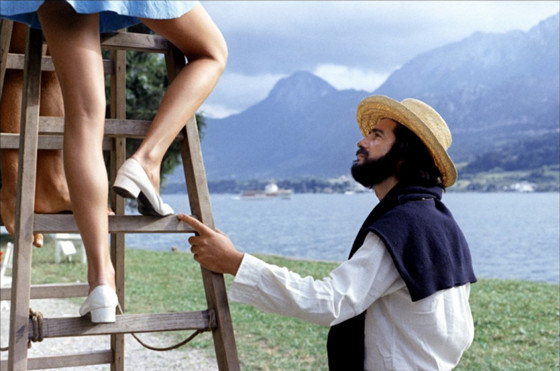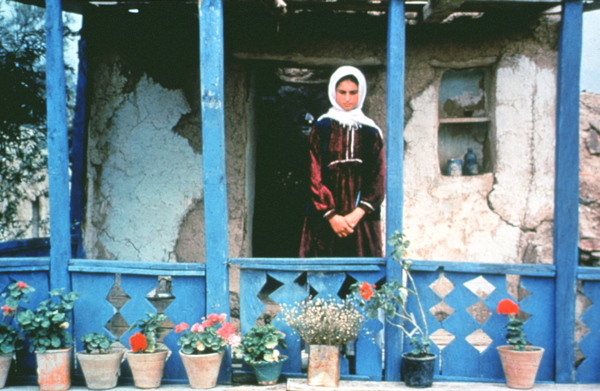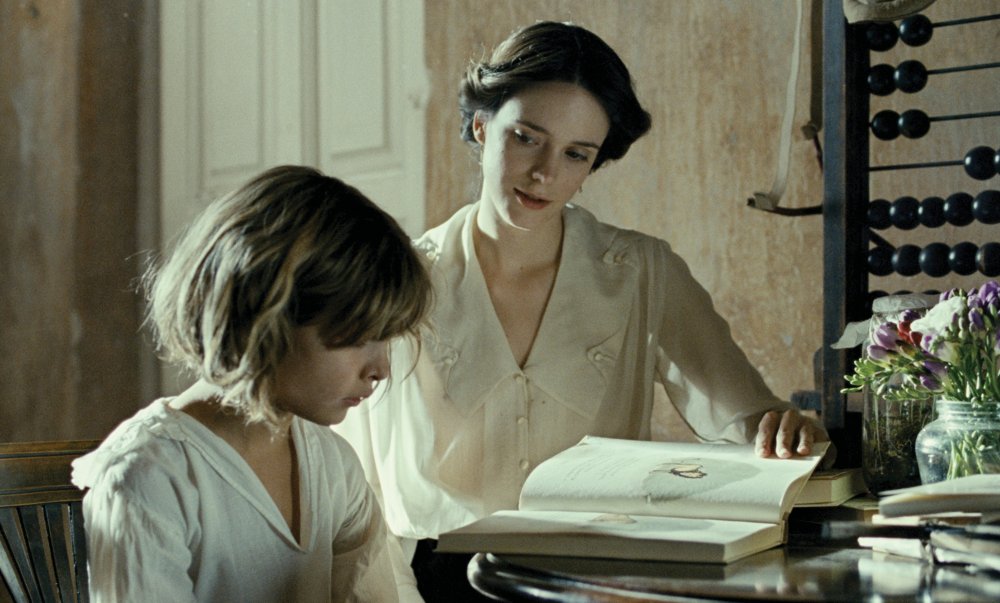6. Claire’s Knee (1970, Eric Rohmer)

Monogamy can be frustrating for somebody who has it all, and Eric Rohmer seems to understand that. In the 1970 feature Claire’s Knee, a wealthy soon-to-be-married diplomat visits an old female friend who introduces him to two teenage siblings. The old female friend, named Aurora, challenges the protagonist to flirt with the young girls so that she can have some entertainment. This leads to a variety of fascinating circumstances revolving around the four main characters.
Claire’s Knee tackles plenty of interesting topics in a relatively short runtime. Motifs such as love, naivety, and loyalty are all explored thoroughly with a biting satirical edge. Rohmer’s script is chock-full of clever themes. The good news is that you’ll never feel like you’re getting hit over the head with any preachy messages. There’s a lot to take in here from an analytical standpoint, but at the end of the day, this is also an endlessly entertaining slice of romantic drama. If you’re not in it for one thing, you’re bound to find something else.
7. The Koker Trilogy (1987-1994, Abbas Kiarostami)

The Koker Trilogy is the unofficial name for a series of films directed by Abbas Kiarostami revolving around a small Iranian village. Though the story connections are rather loose, the trilogy is bound together by both the setting and several themes.
Despite the fact that the series doesn’t tell one linear story, the Koker trilogy does benefit from being seen chronologically. Due to the meta nature of the latter two films, small references would be missed, and frankly, those small references strengthen an already stellar trio of films. Each subsequent entry in the trilogy builds upon what was previously laid out. Kiarostami may not agree with the “trilogy” label, but it’s difficult to separate this collection of motion pictures.
This doesn’t mean that the individual films are bad. Actually, they’re stellar. Where Is the Friend’s House? takes a simple premise and makes it feel like a Greek epic. The same can be said for Life, and Nothing More and Through the Olive Trees. Kiarostami knows how to evolve something seemingly simple in a way that feels fresh, exciting, and memorable.
At the same time, he knows how to expand on themes and explore similar territories in interesting ways. Because of that skill, each piece of the Koker trilogy works together. Sure, they’re technically solid as individual pieces, but they’re so much more when they’re viewed as a greater whole.
8. My Twentieth Century (1989, Ildiko Enyedi)

There’s an argument to be made about the importance of plot. In theory, a subpar plot should result in a subpar movie. After all, the plot is the thing that holds the movie together. However, there are times when a film uses everything else in its disposal to compensate for mediocre storytelling. That’s the case with My Twentieth Century.
It’s probably not ideal to highlight a massive flaw on a list of masterpieces, but there’s a method to this madness. Ildikó Enyedi, who is perhaps best known for her recent hit On Body and Soul, worked on this Hungarian dramedy about mistaken identities and long-lost family. Those familiar with her other features may not be surprised by the director’s unorthodox methodology, but it can be confusing for more casual viewers. The arthouse leanings are immediately evident, and they largely attribute to the messy story, but there’s far more beneath the surface.
Aside from a distinct visual style that remains memorable over three decades later, My Twentieth Century also benefits from memorable characters, pitch-perfect situational comedy, and an amble dose of commentary. The excess whimsey can be grating, as can the bare-bones story, but Enyedi’s experimental feature explores interesting ideas with style to spare.
9. Secret Sunshine (2007, Lee Chang-dong)

Let’s get one thing out of the way: Secret Sunshine is not a happy movie. This South Korean melodrama is about as heart-wrenching as cinema gets. This is not a feel-good experience; it’s draining, glum, and utterly unforgettable. You may not necessarily have fun watching it, but you’ll think about it long after its conclusion.
If you’re familiar with the work of Lee Chang-dong, the above description shouldn’t surprise you. Like most of his filmography, Secret Sunshine is thematically rich but emotionally tiring. Viewers barely get a chance to breathe in between the unfortunate situations faced by the protagonist. Based on this description, it’s easy to assume that the director uses emotional manipulation as a tactic to keep viewers interested.
Surprisingly, that’s not the case. Every tragic moment serves a purpose. This isn’t a pointless tearjerker that solely exists to get an emotional reaction out of people; it’s a bold, calculated drama that asks big questions about grief, recovery, and faith. It can be tough to sit through, but it’s worth it to make it to the finish line.
10. The Childhood of a Leader (2016, Brady Corbet)

Brady Corbet’s directorial debut may be the newest film on the list, but that doesn’t make it any less of a masterpiece than the other titles. This historical drama analyzes the rise of facism in a way that’s simultaneously intriguing and unique. It can be frustrating to sit through, but that’s not because of any issues related to filmmaking. The Childhood of a Leader’s devotion to authenticity results in something that’s as horrifying as it is electric.
With a riveting performance from Robert Pattinson and a hauntingly melancholy script, there’s so much to soak in and appreciate. Given the sub-two-hour runtime, the average viewer may not catch everything during the first sit-through, but luckily, subsequent watches never feel dull. In fact, Corbet’s grand slam begs to be rewatched as a result of the innumerable subtle nuances. Because of this, The Childhood of a Leader isn’t just a must-watch; it’s a must-rewatch as well.